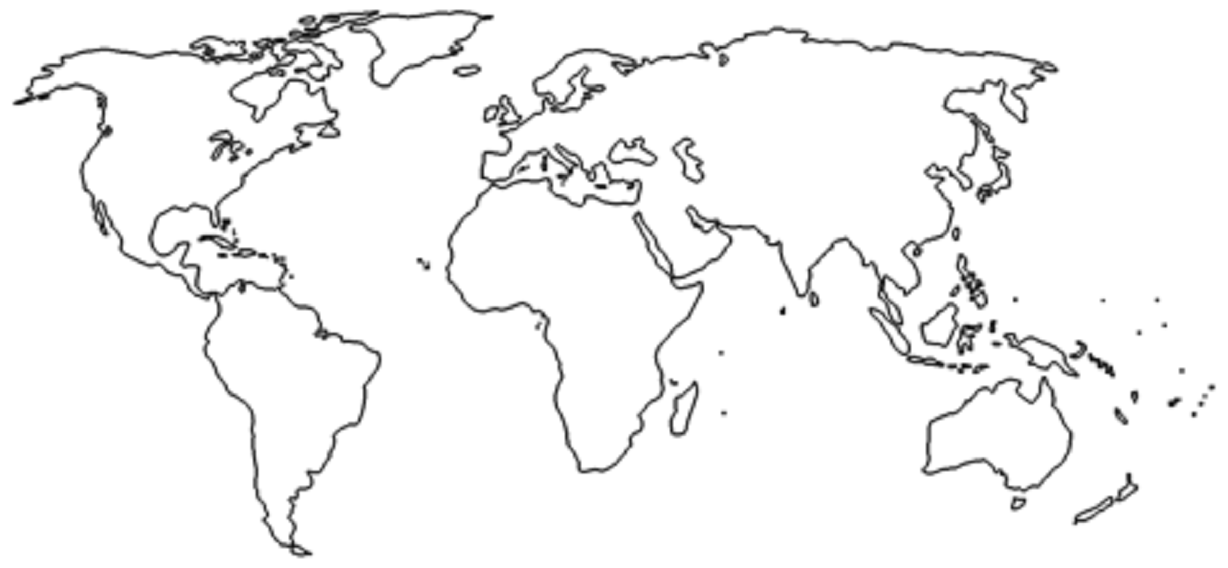Barcelona, 27th, Madrid, 29th of june, Valencia 4th of july 2017. Events on China Ecommerce and Digital Marketing
In the coming weeks there will be 2 events where we will be participating. If you are interested in the topic, you are welcome to join and participate.
Alibaba Overcomes Baidu in Chinese Digital Advertising
According to a new report from eMarketer, experts predict that the decline of Baidu in favor to Alibaba is due to the new market conditions in Chinese digital business. Alibaba has adapted fast to the last digital ads regulation and currently enjoys the leadership in terms of online advertising revenue.
The Chinese Internet landscape is characterized by the huge prominence of the three technology giants.

As you may know, Baidu is the largest player in China in digital advertising market, Alibaba is the Chinese eCommerce leader firm and alongside both, plays Tencent.
These Top 3 in digital industry are estimated to command a total of 60% in ad revenue in the present year, and amount around $42 billion.
What factors have led Baidu to its future decline?
Although currently Baidu still controls the largest share of the online advertising market, the success of the company in 2015 is far from repetition. Baidu’s share in China’s digital ad market is expected to drop to 21% in 2016, and forecasts are less positive for the coming year.
In early September, in the team we analyzed in our article “New Online Advertising Rules in China” the new online advertising regulation in China and its impact in all digital business with presence in China.
The Internet Ad Interim Measures is a new regulation prompted by the State Administration for Industry and Commerce of China. It arose from the Government’s claim by adopt new rules over online advertisement, at the time it was expected to impact on Chinese Digital Marketing as a whole.
As we mentioned before, some fields were subject to special regulation: healthcare, medicine, food and beverage. But new regulations also affect to Internet advertising practices with some other measures: it is required that all paid ads to be clearly marks in search results, prescription medication and tobacco ads have been forbidden and it is already mandatory to certain medical and health products.
From the beginning, these changes were identified by outside analysts as a serious handicap for the future of the company. As Shelleen Shum told,
“We think the impact will be larger on Baidu than on the other search engines given Baidu’s larger market share and its dominance in medical service ads.”

But the coming into force of the new rules, is not the only reason for its current decline. The lack of strong mobile devices is also affecting its ability to attract advertisers.
The main driver in the Chinese market is the mobile platform. As Lyu Ronghui said,
“Huge traffic is the bedrock of online advertising business. But unlike Alibaba and Tencent, which have numerous successful mobile products that can attract traffic from users. Baidu still lacks a new cutting-edge to help jumpstart its slowing traditional search business.”
Facing Baidu, Alibaba has surpassed its rivals taken advantage of the new conditions. As Shelleen Shum explains, its reinforcement is due to,
“Although also affected by the new regulations, Alibaba’s ad revenue, particularly from the mobile sector, shows no sign of abating thanks to the robust growth of its e-commerce retail business.”
Although at present Baidu controls 28% of the online ads marketing, Alibaba is expected to become the largest player in China’s digital advertising market before finishing 2016.
New rules in China
In China, digital landscape changes as faster than imaginable. There are plenty of creative ways to sell your services and products in China, but acting in the hand of a company based in the country, is always a big extra bonus for your business in China.
In search of a Digital Marketing & Ecommerce Agency?
Sources:
5 Bugs To Avoid When Doing E-Commerce In China
Have you ever tried to build a new overseas brand and fail in your attempt? In any approach to China, foreign brands often make some common mistakes when trying to sell their products in China mainland. Although such misconceptions are not exclusive to online environment, we will focus on those that particularly affect your approach to e-commerce in China. China is already the world’s first e-commerce market.
Are you going to miss its enormous potential?
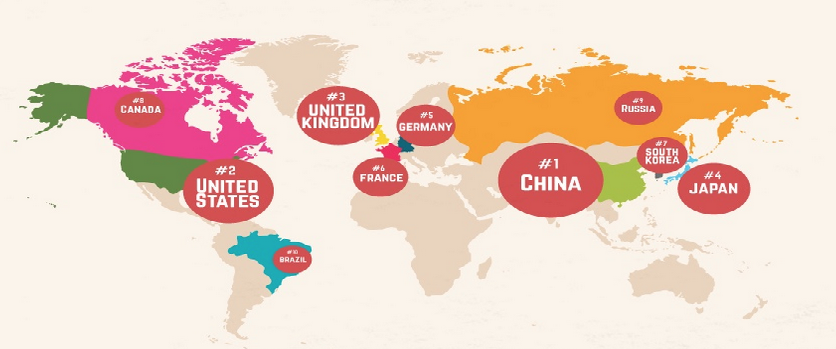
First bug: China is mobile, and you better record it
It is not the first time we tell you this, and for sure it won´t be the last. As we mention before in our article “How to Take Advantage of the Latest Ecommerce Revolution?”, Ecommerce has been a great revolution for both companies and customers.
Nowadays, Chinese prefer to use their mobile devices rather than their laptops and according to the new trend, companies have already starting to adapt themselves to portable devices. Moreover, those companies using U-commerce are focused on improving the customer experience through customizing and navigation created in cooperation with the User.

Second bug: E-commerce may be an asset in your country, but in China is irreplaceable
We cannot fail to mention Frank Lavin, CEO of Export Now, when he says,
“In China, Ecommerce is the cake.”
This may mean that you will need to adapt your business to the new environment. Do not expect it to be China who suits you, this does not work this way.
Remember that whoever hits first, hits twice. Embrace e-commerce as the enabler of your business it is, and take advantage of the immense benefits that electronic commerce can bring to your company to start selling around the World!
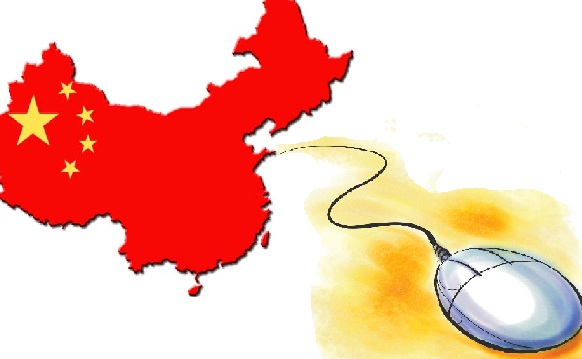
Third bug: Social Media is there to stay. Register your account and start moving!
Surely you’ve never heard the words Baidu, WeChat and Weibo… and let us tell you that you have a huge problem in China.
Not only around the 93% of the online searches in China are done in their own search engines –Have you ever heard Google does not work in China?– but also about a 68% of the customers take a look on the official Social Media account before buying.
Do not miss the opportunity to have a voice in that huge chicken coop is the network, start developing a tailored communication strategy for your brand and gain your piece of the cake!

Fourth bug: Domestic and lazy thinkers, or how the triumph from a day doesn’t make it daily
Do you think you will keep doing in China pretty much the same things you were doing before and as a result you will achieve success?
A basic rule you should never forget again is, no matter the experience and the many different markets in which you have entered before, is that new horizons always implies a new starting on your understanding of the target, so we definitely encourage you to start a market analysis.
Will your brand be competitive in China?
Do you offer something different regarding your competitors?
Is there a suitable market niche in the country ?
These and a thousand more questions require a prior discussion, keeping in mind that China should not be underestimated: the country enjoys some peculiarities you definitely must know before starting your landing.
We strongly recommend you seek assistance from professionals focused on the Chinese market, in order to enhance your chances of success in the country.

Fifth buf: Do not try to do everything by yourself, ask for advice
We are not tired of saying it, and will do so again: China is not a flat road. Do not try to embark on this mission unaccompanied, but pick very well with whom.
Look for complementary partners interested in joining forces, go to Government agencies dedicated to external actions and internationalization and definitely search for specialized agencies in the country to start outsourcing some tasks.

Already in search of a consulting expert in digital marketing and e-commerce? You have come to the right place.

New Online Advertising Rules in China
New online advertising regulation in China will impact all digital business with presence in China. Here we bring you an analysis overview to start adapting to the new trend in advertisement.
It would be after the death of a college student who took part in an experimental health treatment found in Baidu, when popular pressure would force the Government to begin an ads regulatory change.
The Internet Ad Interim Measures, a new regulation prompted by the State Administration for Industry and Commerce of China, went into effect in September 1st. Therefore, it arises from the Government’s claim by adopt new rules over online advertisement: email, paid searches, embedded links, images, and videos are already subject to the new law. Its aim is avoiding the spread of misleading advertisements on the Net, and correct the prevailing liberality so far.
The new online advertising regulations are expected to impact on Chinese Digital Marketing as a whole: social media, search engines, apps and electronic commerce in the country will have to move under the new guidelines.
A step closer to the uses and customs in Western advertisements
For the first time in China, the new measure features a specific definition of Internet advertising; often, foreigners suffer from a lack of legislative safety in China. Therefore, conceptualization is a step forward to define clearly not only the concept, but also its extension:
“Internet advertising is advertisements that directly or indirectly sell commercial goods or services through the websites, web pages, internet applications and other forms of Internet media including text, images, audio, video and etc.”
Moreover, the regulation comes to underline its main purpose:
“To protect the legitimate rights and interests of consumers, and promote the healthy development of the Internet advertising industry.”

In what fields are these changes applicable? What changes will take place after its implementation?
The regulation is particularly focused on a list of fields described below:
-Healthcare and medicine
-Food and beverage
The main measures to be starting to apply can be summarized as:
–First, the Law requires to place the word “advertisement” in a prominent position and clearly distinguishable at first sight.
–Second, every field subject of special regulation needs a previous review and an approval process by authorities.
–Third, online advertisements for prescription medicine is banned. A special measure in health products is also extended to medicines, pesticides or medical supplies.
–Fourth, tobacco online ads are also banned.
–Fifth, any paid search results, links or content must be clearly identified by the word “advertisement”.
–Sixth, users should not only have the choice to close an ad, but also this has to be easy to them.
–Seventh, paid links and contents must be clearly detailed at a glance.
–Eighth, any attached ad and/or promotional links to an email should have been allowed previously.
–Ninth, any misleading and/or false ad is considered illegal from now on.
Who is especially affected by the new regulation?
Under this measure, the biggest impact falls on the largest Internet companies in China. Baidu and Bing should apply new restrictions on ads; it should not be forgotten that, much of the incomes of Baidu, Weibo or Alibaba come advertising.

But also traditional Social Media must change. WeChat or Weibo offer paid content; as we mention before, pop-ups, ads or links should be first permitted, which will force companies to evolve the way advertising is offered to Chinese users. Seems marketers should start creating better ads, or contravening the prevailing legislation with all the penalties that that means.
There are plenty of creative ways to sell your services and products in China. In search of a Digital Marketing Agency?
10 Things you Need to Know to Build a Chinese Website (Part 2)
In the first part of this article, we showed and identified 5 main points that differentiate a Chinese website from its western counterpart that we need to keep in mind in order to build a good one.
Let us summarize some of the main points addressed in the previous article:
- The style, design and structure are more complex and with much more information in opposition to the cleanness of the western websites
- In terms of user experience, Chinese are used to a great amount of links and keyword search boxes are the kings for navigation purposes
- Where to host your Chinese website is one of the first decisions to make. The most of the times we advise you to have a hosting in China. For that you will need a Chinese company to apply for an Internet Content Provider (ICP License)
- The Chinese Great Firewall blocks all websites that do not meet the content requirements that marks the Chinese government
- Your website needs to be ready to integrate with the main Chinese players. Google, Facebook and friends are banned in China; instead you will need to use the BATs (Baidu, Alibaba and Tencent).
After this little updating, we would like to further develop this post showing you 5 more crucial things to take in consideration when building a good Chinese website.
When building a chinese website, What else should I know?
6 – CHINA IS MOBILE. BE RESPONSIVE
Adapting our website to mobile is very important in any country, but in China is mandatory.
The Smartphone is, in many cases, the only way they have to access the Internet. Therefore Chinese users are much more familiar with the use of mobile devices. Keep in mind that almost the 50% of all Ecommerce transactions made in 2015 were done via mobile, compared to the also quite high 22% in the United States.
Don’t think any longer and start working on a nice mobile design… Mobile first!

7 – DOMAIN. WHICH ONE IS THE RIGHT OPTION FOR ME
In your approach to domains, three are the main options:
– Not that long ago, to have a .CN was a must. It was not possible to get it if you didn’t have a Chinese legal entity. This has changed over the time and now you can easily get a .cn domain, no matter where your company comes from, just providing a copy of your Company’s ID. As the Chinese international top level domain, your brand might be perceived as having a strong presence in China and might also bring some trust
– On the other hand, we have the .COM domain. Chinese Internet users are increasingly getting used to this domain. Major Ecommerce platforms like Tmall.com, JD.com or Sunning.com may bear much of the blame for this. It can be very good for foreign companies trying to sell their products in the Asian giant to have a .com domain as it might help to highlight the international feel of the brand
– .COM.CN is the ugly duckling in the middle still in use by many brands mixing the good things from the previous mentioned domains, but without reaching their full advantages. In any case it can also be a good solution.
Which language should I use?
Another point to think about is the language to be used. Does your brand have a Chinese name? Then you can also use its pinyin term. Pinyin is the romanization system for standard Chinese: Chinese search engines recognise the pinyin words in the URL and then link them to what they stand for in Chinese characters in order for the website not to lose coherence.
Our advice?
Don’t get crazy about the domain, they are usually not that expensive. So, in case you can afford it, try to get the three of them (.com, .cn and .com.cn), plus their pinyin variants and redirect them to the main one; depending on your strategy.
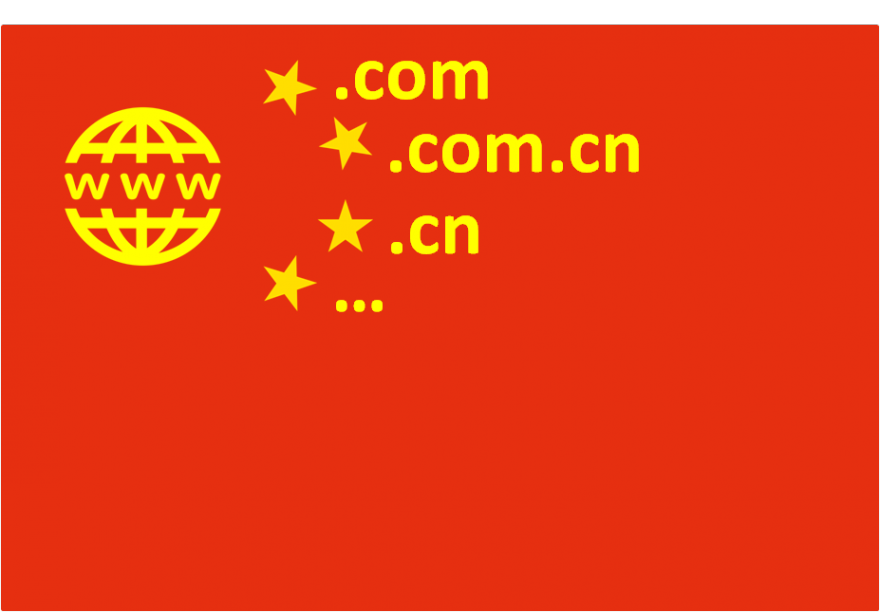
8 – CONTENT. DON’T GET LOST IN TRANSLATION
It is important to know very well your main target markets as the language will differ depending on it. It might be obvious to mention it, but it wouldn’t be the first time that a company’s target consumer is in Hong Kong, Taiwan or Macao and the language used for the website translation was simplified Chinese instead of traditional Chinese and the other way around. That is a major and silly mistake that takes a long time to revert.
I don’t want to mention either the fact that a Google translated web does not help at all, but I am doing it because I have seen too many. It is mandatory to let a professional team take care of the translations. In 2 Open we separate this process in three parts:
- Translation, interpreting the main message that the customer wants to transmit to the final customer, done by a marketing professional in our team
- External review, done by a professional translator outside the team
- Final review, done by another marketing professional in our team
You might not believe it, but in certain cases we still get minor complaints. This is because Chinese language can be interpreted in many different ways. Therefore translations are always a difficult point in the list.
Is Customization a mandatory requirement?
Let’s not forget about the Chinese cultural customization. Website localization embraces translating and localizing a site into different languages making sure all content (text, images and videos) is translated correctly in an accurate, cultural and technical manner.
As stated before when talking about content, we are also talking about images and videos. There are no written rules and it has similarities to the domain section we discussed above. There are brands like Nike or Zara that prefer to maintain their international feel using western models in their multimedia strategy. Many young Chinese users welcome this method, but not all of them. Depends on the strategy you want to follow.

9 – PAYMENT OPTIONS. CREDIT CARDS? NO, THANKS
In the previous post, we wrote about the BATs (Baidu, Alibaba and Tencent). In China, the online payments market is currently dominated by two of these two tech giants – Alibaba’s Alipay and Tencent’s WeChat payment with 49.2% and 20% market share respectively.
These companies try to increase their market share by adding more brands and merchants within their ecosystem; something that both companies effectively handle. Also cash is king, as cash on delivery holds a strong position. The fast and vast adoption of electronic payments via mobile is likely to counter this trend in due time.
It is actually China and not the US at the leading edge of the trends towards mobile payments technology. Just for putting an example, both WeChat and Alipay have long used the now famous QR codes to let Chinese netizens pay for purchases and transfer money. It seems they have jumped over some natural technological development processes. This kind of behaviours can be quite normal in undeveloped countries that start to grow very rapidly.
What happened is that they adopted the mobile payment technologies even before implementing some existing ones as a huge percentage of the Chinese population accesses the Internet via mobile devices.
Another tip?
Get ready to integrate Alipay in your website as first and mandatory option. And seeing how fast Tencent WeChat payment is growing, that would be your second natural option.

10 – SEO
Once your website is ready, you will need to submit it to Baidu creating a Baidu Webmaster Tools account (only available in Chinese). That way Baidu will be able to index the site properly and your great Chinese adventure starts!
Search engine optimization done in Baidu is not so very different as the one you could do for Google. Anyway, we would like to note a few differences I think you need to know:
– Meta description – unlike Google and Bing, Baidu still uses Meta descriptions as a ranking factor. Keyword targeted description match users’ queries and their demands, which would help with the click through rate (CTR).
– Indexation – Baidu’s web crawling bot, Baiduspider, is not as advanced as the one from Google. As a result, you will need to help Baiduspider to discover and index your pages in different ways. Without mentioning that you can go to sleep and wake up with huge traffic losses or de-indexed pages usually caused by a penalization. Be careful what you do!
– Link building – On Baidu, it is not about the quality of the publishers’ website, it is more about the unique relevancy of the content (as it relates to your content) and the quantity of links to your pages. Baidu penalizes duplicate content and it also disallows irrelevancy. Authority and quality of the publisher is not that important (for now). In short, the more the merrier as long as it is not duplicate.
– Baidu services – Baidu offers a lot of different products apart of Search; use them and leverage their integrated marketing power. The most useful are Baidu Zhidao (questions and answers service) and Baidu Baike (Wiki service), but there are tons of other services that might be helpful to increase brand awareness and for content creation.

OTHER ASPECTS
As for the tracking, most people use Baidu Tongji and/or Google Analytics. Yes, you read it well; Google Analytics still works in China and it is the only Google service that still does. You will find many detractors, but for what we have seen there is no huge discrepancies between the data collected by both systems (usually not higher than 5%). And Google Analytics has more functionalities than Baidu Tongji.
It is also important to mention the typography. Chinese language is not easy to read due to the difficulty associated to its typography. With 40,000 characters, they are divided in strokes which amount can vary between 1 and 60. Therefore the font size should be at least 12px.

At 2 Open, we would be pleased to help you.Take the advantages the Chinese market offers.
With the cooperation of our Digital Marketing and Ecommerce Agency, China will be at your fingertips.
Do not hesitate to visit us We´d loved to hear from you!
This article has been edited by Paula Vicuña, from 2 Open.
How to Acquire Chinese Tourists through Digital Marketing
It is almost August and tourists are everywhere. From 2 OPEN we are pleased to give you some basic steps to acquire Chinese Tourists through Digital Marketing.
Since 2013, the number of Chinese outbound travel population and tourism consumption both already ranked the world’s first.
In the next few years, Chinese outbound tourism consumption market will continue to maintain high growth speed: 174 million Chinese people will choose to travel abroad, and the amount of consumption will be around 264 billion US dollars in the year 2019 by estimation.
Chinese tourists has become the “cash cow” of global travel industry
This prosperity is due to the increase of urban population and disposable income, the rise of the middle class, RMB appreciation, the gradually liberal visa policy and the increase of international flight routes have given rise to the empowerment of as a yet undeveloped sector.
What kind of travel products do Chinese tourist usually choose when travelling?
When travelling, Chinese tourists mainly choose to travel with tour guide, both group package and/or flight + hotel. Even if travelling without guidance is still scarcely used, it is a fast leading trend and a great opportunity of future.
Which Channels do Chinese tourism use to purchase travel products?
Even if traditional travel agencies are still the most popular, every day more Chinese opt to book though Online travel agencies, such as Ctrip and Qunar. It is highly likely that its importance grow each year.
How Chinese travelers spread their feeling about their country-destination?
The consumption of Social Networks in China is massive. Either through posts or instant messaging, the power of “Word of Mouth” is overwhelming.
Wechat and Weibo play a very important role in choosing destinations for Chinese people.
From 2 Open, we suggest you paying attention to online platforms in any plan to approach the Chinese market.
Which channels do Chinese people use to search touristic-information?
Either through an Agency´s Website or through Social Media, Chinese travelers love using new technologies to discover places, compare tariffs and share their experiences abroad.
Once again, the power of the main Social Media Platforms in China –Wechat and Weibo– is increasing each year.
What do Chinese travelers suggest for information channel?
The most expected information search channel for Chinese travelers is to set up Chinese official website, followed by WeChat and Weibo Chinese accounts set-up.
So, What can you do to attract more potential Chinese tourist to your destination?

From 2 OPEN we suggest you some ideas before starting your approach to China:
- Build a Website:
To set up a Chinese Website, this must be hosted in China (-cn domain). It would be necessary to make it consistent with Chinese search engine´s standards and be entirely written in Mandarin.
From 2 OPEN we strongly suggest you to take advantage of new technologies –Big Data- to improve the user experience and target the right audience.
- Search and Display Marketing:
Baidu, the biggest Chinese search engine, is essential on any approach to Chinese digital market. Your site should be well-ranged on Baidu´s search engine to let Chinese tourist find you.
In 2 OPEN we have the expertise to deal with SEO or SEM campaigns, in order to help you to gain visibility and target potential customers.
- Social Media:
Social networks are the most used channels in China. Try to attract users to your official accounts –WeChat and Weibo– by posting travel news and proposals to people. Start your Social Media plan with our help!
- Key Opinion Leader:
To build a proper networking with Key Opinion Leaders on Social Networks can make the difference in China, and they are a very effective way to promote products and services.
- Cooperate with a third-party agency:
Online Travel Agencies -like Ctrip– provide a package of services include tickets, hotel, tourism products and car rental etc. Cooperate with them will bring you huge traffic and a great chance to sell. In addition, Online Travel Agencies let customers interact each other about trips, top destinations and advices.
From 2 Open, we encourage you to take an advantage of their social marketing impact by improving your content marketing.
- O2O:
In last year, China tourism O2O industry achieved great improvement. The relationship between resources and platforms become closer under the impetus of capital. Wheather through Online platform + offline resource or Online channel + offline channel, both can make the difference.
- Offline Event and Public Relations:
Traditional offline advertisement promotion can be useful in China, but very expensive. Combine Online and Offline Marketing can be the top-solution for your company.
We hope this information has been valuable and helpful to you, and we encourage you to start your approach to the huge Chinese tourism market. With our help, your company could take the great advantage online marketing offers!
Have a look to our services!
This article was edited by Paula Vicuña, from 2 OPEN.
10 things you need to know to Build a Chinese Website (Part 1)
When planning to enter the Chinese market, one of the main points in every marketing plan should be the creation of a website that focuses on the Chinese consumer.
Naturally, there are some questions that come to mind…
- What are the differences between a western and an eastern website?
- What are the aspects that I have to keep in mind in order to trying to attract Chinese consumers?
- Would it be a good idea to just duplicate and translate my current content?
All of the above can be summarised in one question; what do I need to do in order to create a great website that will have the potential to reach the 675 million China internet users?
In this series of posts, we will try to give you some tips that will help you create a website for the Chinese market that will appeal to Chinese consumers and also match the style, tech and literary attributes of eastern consumers.
1 – Chinese Web Design – What the …???
When we look at a Chinese website, the first feeling we get is confusion… Language, structure, content … We can´t find anything similar to Western websites based (lately) on cleanliness and simplicity. Our China web design must be adapted not to our tastes, it must match Chinese consumer design taste.
If you have not navigated through Chinese websites maybe you don´t completrly understand what I mean. You´ll see easily the difference with these two examples. Taobao and Ebay, two B2C marketplaces (or C2C) from east and west.
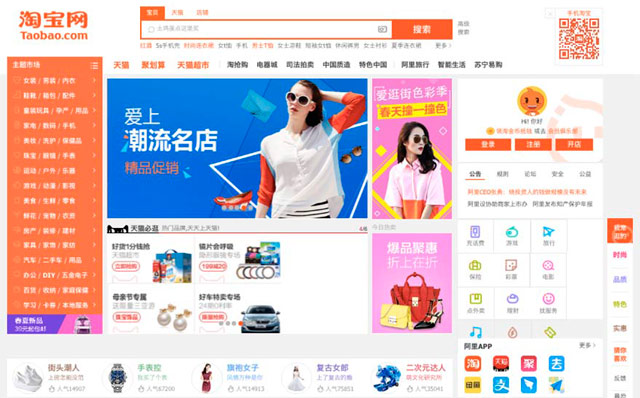
China Web Design Example – Taobao Home Page

Western Web Design Example – Ebay Home Page
Can you appreciate the difference in style, design, structure? I bet you do…
We can see a lot of information on Chinese site in contrast to the cleanliness and simplicity of the western site.
Our experience creating websites for the Chinese market has shown us some key points to understand and get advantage:
- Chinese websites use many more elements and are much more colorful than Western.
- Chinese language is different. It seems obvious… but there are things we have to consider about Chinese language such as:
- There is not a capital letter in Chinese
- There are no spaces between characters
- Chinese characters are far more dense than our letters
- Chinese sites use a lot of animation, flashing texts and banners. This is clearly the opposite to our western websites where movement is disappearing. The reason can be it’s much harder to grab attention using fonts in Chinese than it is with western languages.
2 – User experience… Do they have any good one?
We have just seen as websites in China seem much more complex than we are used to. We might think that the user experience will be a nightmare, but Chinese user is so accustomed to information under this structure as we are to the western structure.
Chinese user is concerned about usability and user experience, but is used to webpages so busy usually does not care how the site looks. However the trend is towards simplicity and clarity on web pages. In a more European style.
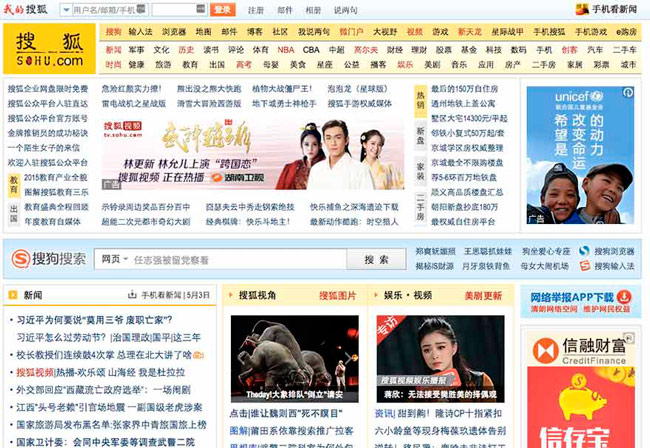
Where is (link) Wally?
Some of the highlights on Chinese websites regarding to navigation are:
- Chinese websites have a big number of links, however Chinese users do not like this system. This can be given by the low load speed internet in China.
- All this links use to open in other new windows. Why? Again it’s mainly an issue of speed. Internet access in China is generally slow, users have gotten used to opening new links while waiting for a page to load.
- Keyword search box as a navigate tool. Link system is not comfortable for users because they can be lost due to the big amount of links. For this reason, on Chinese websites keyword searches have to be really efficient, and the search bar must be top accessible.
3 – Hosting & ICP. DIstance matterS
The one who said that, in internet there is no distance, did not know about China. If you are not (legal and/or physical) in Mainland China, easy staff like finding the right hosting can became a little bit more complicated.
Let´s start from the beginning, one of the most common questions when we are going to create a China site is should we host our website within or outside China? Is there is a big difference? The answer is very clear, as far as possible we should try host the web in Chinese Mainland, and we will try to explain why.
China network structure is not the best, which makes the websites loading speed not the most appropriate. By hosting our web outside China this problem becomes much more serious.
Okay, so we are clear, we should host our website in China, now what? We must apply for a number of ICP (Internet Content Provider) to the Ministry of Industry and Information Technology of China. This is the ICP license that will allow our site to stay in Mainland China. Only companies with a physical presence in China can apply for this license (which usually see in the footer of the sites, as in our case).
For companies that do not have a legal entity in China, we do recommend looking for hosting solutions in Hong Kong, which can limit the problem of loading speed and make our site more accessible for the Chinese user.
Now that we talk about speed, even though the main problem affecting the same be the hosting (inside or outside) there are also other factors that can make our web go slower (and we have seen that it is a key point in China) as can be:
• Website images are not size optimized
• Poorly code in our website
• Low hosting quality (even inside Mainland China)
• Our site is using services blocked in China (Google Fonts, Google Maps, Twitter, Facebook, etc…) which prevents the page from loading
4 – Did you say… services blocked? … the Chinese Great Firewall
China not only has a huge physical walls to defend themselves (in the past). China also has a large digital wall, the Great Firewall. Originally known “Golden Shield Project” but ironically nicknamed Great Firewall, it is a censorship and surveillance project initiated by the Chinese Ministry of Public Security in 2003.
This project acts as a digital censor and block all websites that do not meet the content requirements that marks the Chinese government.
Here you can see some more information about how the censorship works.
Among other things, Chinese Internet censorship censored webpages that have content that include; news sources cover topics considered that are defamatory against China: such as police brutality, Tiananmen Square protests of 1989, freedom of speech, Taiwan Government, Dalai Lama or the Tibet Independence Movement International …
These sites are banned or are indexed to a lesser degree, if at all, by some Chinese search engines and have significant impact on search results.
As a result of this control in China they are blocked pages as usual for us as Google, Twitter or Facebook (it does no matter how much Mark go jogging in Tiananmen). Although great firewall control is easy to jump (using a VPN, for example) the difficulty of accessing these pages has made their use and popularity is low.

Stop laughing Mark. It´s not gonna happen
This means we need to be very careful with our website content, try to be sure to avoid Great Firewall content restrictions and not to use third party banned platforms like Google (Google Maps, Google Fonts), Facebook or Twitter.
5 – New Players & New Rules
So, no Facebook or twitter, how am I going to promote my website? China has a digital ecosystem different of everything we are use to. Surely you’re wondering how you survive without some of the usual promotional tools. Natural positioning in Google, PPC Adwords campaigns, promotion of content on social networks like Facebook or Twitter …
In China you will find new players who have occupied these gaps and in some cases, created new niches. These new players have taken advantage of the absence of foreign competition (Facebook, Google …), its adaptation to Chinese culture and peculiarity and in some cases even a strong government support.
These actors we found some “copycat“, certified copies of known systems, such as:
- Baidu, the Chinese search engine par excellence (suspiciously similar to Google)
- Weibo, the microblogging service (suspiiiiciouuusssslyyy similar to Twitter)
- Youku, video service (guess who it is similar?)
We also have WeChat, the jewel of the crown and the mobile app (almost an OS) that includes messaging, payments, calls, moments … and which we discussed in detail in another post.
For our website to be inside China digital life it must be adapted to the rules of these actors, common in the dailylife of the Chinese consumer.
So, who are the big guys that you need to be friend of?
As soldiers in a war, most of these tools fall into three large “armies”. These three groups are known as the BAT and are in constant battle to dominate the Chinese digital ecosystem.

Who is going to win this war?
In short, Baidu holds commanding market share over search. Alibaba holds to the same power over e-commerce. Tencent is the dominant player in social media. But they are constantly trying to invade their territory, in a very interesting war for any fan marketing.
One of the commonalities of the BAT is a full support of the government, together with its dominant position in the market, makes this status quo is difficult to change.
What does it means for our website? We need to adapt our communication to this new players, generating our social media activity through Wechat, optimizing our SEO for Baidu or 360, uploading our videos in Youku, adding sharing actions in our content with Chinese social platforms… anything we use to do in our occidental site does not help us here and can be even negative for our goals. As we have seen, if we keep on using tools like Facebook (post sharing options for example) we can be blocked by the Great Firewall.
Do you want to know more? Sure? CHECK THE SECOND PART OF THIS POST HERE
References:
http://www.china-briefing.com/news/2015/05/22/best-practices-launching-china-website.html
https://econsultancy.com/blog/67466-why-do-chinese-websites-look-so-busy/
http://www.latmultilingual.com/build-localized-chinese-website/
Sources:
http://www.freepik.com/free-vector/screen-with-a-website-and-icons_847180.htm
http://www.freepik.es/vector-gratis/trabajador-llorando_834598.htm
Big Data and Precise Marketing – Tips from Baidu
Nowadays everyone is talking about big data, but what exactly is big data? How can we use it to benefit our business in China?
As we all know, Baidu is the biggest, and most popular, Chinese search engine with coverage of approximately 95% of China’s population. It receives around 6 billion search queries per day. With their countless backstage data, Baidu decided to move forward into the big data area and try to convert it into a high-value business service.
Last week 2Open attended a seminar about Baidu’s big data and precision marketing. Here are some point that were discussed during the event.
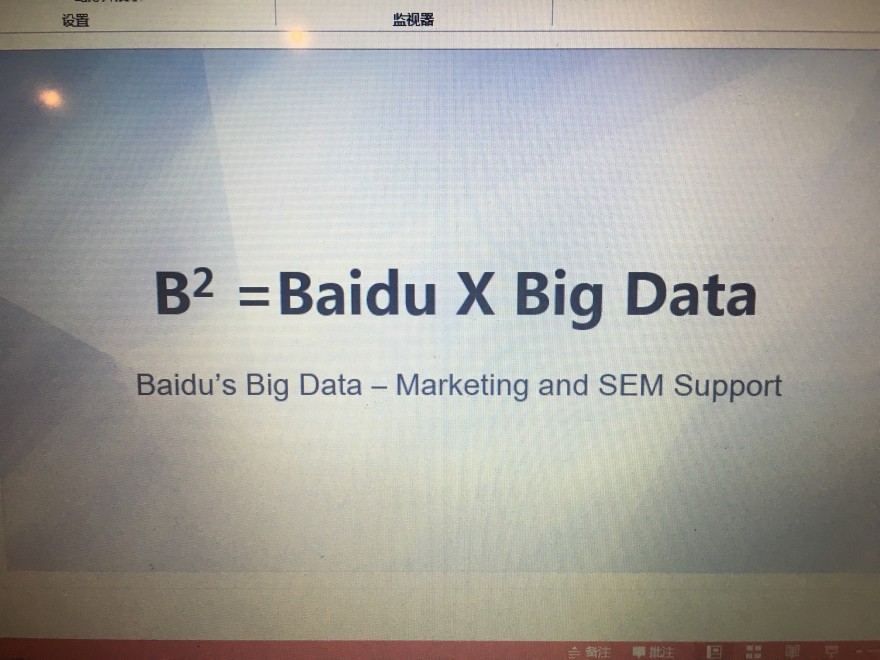
What is big data?
Big data is all about predictions, math applied to large quantities of data in order to infer probabilities. The big data will provide us with the new ability to crunch a vast collection of information, analyze it instantly, and draw conclusions from it.
Big data can be used in a variety of business field: cross marketing, precision marketing, reference location, credit investigation, quantity investigation, disease prediction and travel prediction etc.
For instance, by using Baidu’s big data, we can find out the crowdedness of certain touristic attractions and the popularity of the travel itinerary in China. With the help of this data we would be able to improve our travel plans since we would be avoiding crowded destinations.
Big data for marketing?
In the past Baidu cooperated with a motor company (to protect the advertiser’s rights we will refer to this company as Company A).
First of all, Company A wanted to launch a new A0 level car to the market, but they had no idea what the new car’s selling point was, more importantly, how to handle the pre-marketing and publication campaign. They decided to work with Baidu and used their big data service.
Secondly, Baidu identified consumer’s emotional needs by mining social data, and exploring differentiation opportunities by scanning the perception of other competitors. With all of this data they decided to use “happiness” as the communication concept/selling point of the new car.
Finally, by studying consumer’s profiles, identifying target audiences, and understanding different age groups by analysing their lifestyle and engagement occasions. The new car’s main target audience resulted to be 23-45 males, in tier3, tier4 and tier5 instead of tier1 and tier2 cities. This turned out to be the most important consumption market.
For lifestyle occasions, Baidu chose readings, videos, movies, TV series and gaming as the main five labels for determining their target audience. Company A even designed a LOL (League Of Legends, one of the most famous online games) poster ads.
For engagement occasions, there are five stages before the final purchase. Baidu defines them as; category research, comparative study, trial, finding 4S stores, and financial plan. Then they give related suggestion to company A for every stage of the marketing strategy.

Baidu named its big data & marketing decision platform “Sinan”(http://sinan.Baidu.com/). This platform mainly provides nine functions: audience definition, brand recognition, interest insight, search behaviour, demographics, geographic, media preferences, multiple data merge, and media buying suggestion. With the help of a big data platform like this any marketing strategy will be much easier for a company.
Still wondering about how to improve your business in China? Try embracing big data now! Or… get in touch with us. Here at 2Open we are passionate about every project. Our team of specialists have the expertise and knowledge that your company needs to thrive in the Chinese market. If you have any questions or require any information about our services, please do not hesitate in contacting us, we will be more than happy to assist you.
This article was edited by Andres Arroyo Olson from 2Open.
7 Facts You Need to Know About The Chinese Online Market
1. The Chinese online ecosystem is shaped by the actions of the B.A.T.

The B.A.T. is a group consisting of Baidu, Alibaba and Tencent. They are the dominant players in the Chinese online ecosystem. The dynamics of their competition and cooperation defines the boundary and possibilities of digital marketing and ecommerce in China. Each member of the B.A.T. dominates important segments of the online ecosystem: Baidu dominates the search engine market; Tencent is strong in social media, and Alibaba fiercely rules ecommerce. The results of this competition can provide inconveniences for online marketers. Baidu, for instance, is reluctant to direct search traffic to Tmall stores and pages, where in some cases a company will need special permission from Baidu to promote Tmall stores using Baidu’s Search Engine Marketing (SEM).
2. Baidu’s dominance in the search market
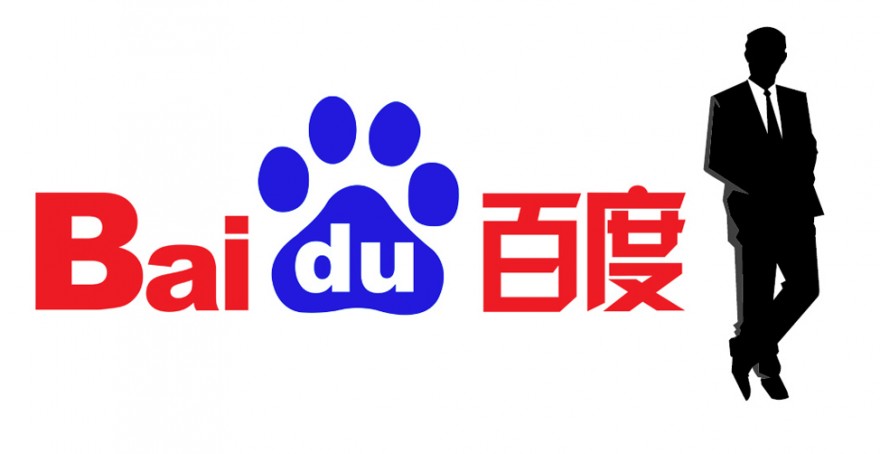
Baidu’s dominance in the Chinese search market means that most search engine related marketing activities requires the cooperation of Baidu to work. Baidu’s Search Engine Optimization (SEO) is different from Google’s SEO. Baidu still requires Meta data for proper indexing and it prioritizes loading speed quite heavily. Setting up SEM accounts with Baidu can either be an easy task that lasts for several working days or an excruciatingly slow and cumbersome process, which might take months to complete. This depends on the involved company’s policy match with Baidu’s requirements. There is also a minimum investment requirement for setting up an account. These can range from as low as 6,000 RMB to as much as 500,000 RMB depending on the type of account that is being opened. One of the most important aspects of Baidu’s listing is the absence of brand protection. This means that brand keywords can be bought by any paying parties willing to buy them. This might lead to unfair price based competition between official suppliers and the unofficial ones, or even from someone that sells fake products through proper channels.
3. Wechat is not just a messaging app; it is a lifestyle app that defines online interaction in China

It is hard not to know about Whatsapp, Facebook, Twitter or Instagram in 2016, yet many are not familiar with Wechat if they live outside of China. Many foreigners regard Wechat as a Chinese version of Whatsapp but it is far from just a messaging app. To be more precise, Wechat combines the function of many known social media sites and utility apps. Users can chat, post their photos, sell items, make online payments, book a ride, buy transportation tickets, invest their money, and more. In addition to being used as a private app, it’s becoming more and more popular in the work place, mainly used for communications. With so many diverse functions and over 600 million registered users, marketers naturally want to use Wechat as a channel to communicate to their target audience. Wechat offers the possibility of a one on one customer service; creating customized functions to improve the brand experience. However, with the Wechat craze comes the high costs of Wechat marketing. Posting merketing content on a big account with upwards of 100,000 followers can cost as much as 80,000 RMB.
4. The Chinese consumer has embraced ecommerce faster than most markets

The rise of ecommerce in China surprised many outside observers. Many consumers born in the 80’s and 90’s have fully embraced the concept of ecommerce as the main way to purchase items. Anything from daily necessities to premium products can be purchased. The Chinese consumer responds well to online promotions and acceptance of new brands, however, most of them are still price sensitive. Foreign brands selling in the Chinese market to the Chinese consumer are less likely to be successful offline due to the high cost of real estate. Platforms such as Tmall and Jing Dong and vertical e-store are the best way to sell to consumers in China. Ecommerce events such as 11.11 are already a cultural phenomenon in China where the total transactions can be above 11 billion USD in one day.
5. China has one of the most highly regulated online environments in the world

China is one of the fastest growing online markets yet it is one of the most regulated ones. Traffic data going in and out of the country is heavily censored and is significantly slower than domestic traffic. This means that local hosting might be necessary for optimum speed. To publish a website, a company is required to obtain the Internet Content Provider (ICP) license to publish any content online. China has a very strict advertising law. Multinationals are regularly hit with fines for violating the law and some fines can go up to 100 million RMB. It is critical to study the proper regulations and laws before entering the Chinese market to prevent future risks and losses.
6. Mobile is not the future; it’s already the dominant traffic in China
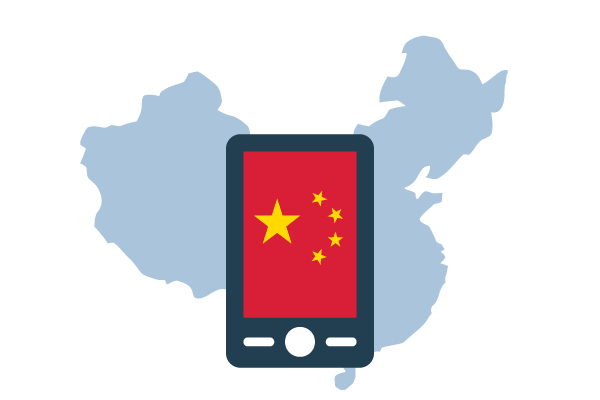 In recent years, PC traffic has been decreasing 15% every year, whereas mobile traffic has been increasing as much as 20% in the same time frame. Many online retailers are reporting that most buyers are using their mobile phones to buy items online. Conversion for mobile traffic is also higher than PC traffic in many cases. This is due to the high penetration rate of smartphones as well as user reliance on mobile devices for online payments. It is easier for users to pay online with mobile phones than it is with their PC. Traditionally, consumers would use their PC to do extensive research before buying online. However, with improved mobile connectivity and mobile optimized websites, many consumers are abandoning PC and in some cases only uses PC for work related activities. The pay-per-click for mobile traffic can create as much as 300% higher than PC traffic in some industries, mainly due to limited advertising space and high demand.
In recent years, PC traffic has been decreasing 15% every year, whereas mobile traffic has been increasing as much as 20% in the same time frame. Many online retailers are reporting that most buyers are using their mobile phones to buy items online. Conversion for mobile traffic is also higher than PC traffic in many cases. This is due to the high penetration rate of smartphones as well as user reliance on mobile devices for online payments. It is easier for users to pay online with mobile phones than it is with their PC. Traditionally, consumers would use their PC to do extensive research before buying online. However, with improved mobile connectivity and mobile optimized websites, many consumers are abandoning PC and in some cases only uses PC for work related activities. The pay-per-click for mobile traffic can create as much as 300% higher than PC traffic in some industries, mainly due to limited advertising space and high demand.
7. Local content through local perspective

The Chinese market is still flooded with marketing contents that are just a direct translation from their original language. Some branding videos of multinational companies do not have Chinese voice-overs, only Chinese subtitles. While these contents do not necessarily fail to communicate their intended message, most have drastically reduced their effectiveness and recall rate due to being less relevant. In order to communicate effectively, companies need to dig deep to find relevant messages and hire local content producers as a bridge to effectively communicate to their Chinese consumers. This is especially relevant when publishing materials online, where the Chinese consumer expects instant gratification, not a bad translation.
This article was edited by Andres Arroyo Olson from 2Open.








